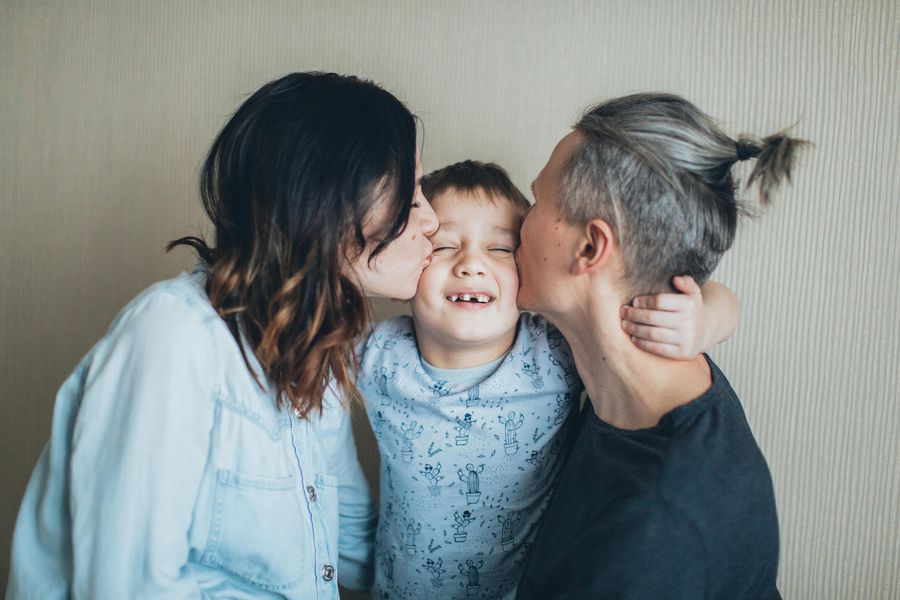How to Be a Better Parent: Qualities and Skills You Need
Being a parent is one of the most challenging roles out there. It doesn’t come with an owner’s manual or a universal set of rules to follow.
Every child is unique, and every family faces a different set of problems. This means that parenting requires a trial and error approach, with plenty of interaction, continuous improvement, and advice.
If you want to be a better parent, you need to have a support system – family, friends, and community. But most importantly, you need to develop qualities and skills that will help you navigate the difficult times, encourage and motivate your children, lead your family, and set a good example for your children to follow.
In this article, we’ll talk about the skills and qualities that make a good parent and give you tips on how to develop them.
Importance of Trial and Error Approach
Parenting is a trial-and-error process. There is no one-size-fits-all solution, and what works for one child may not work for another.
This is because each child has a unique personality, and each family has a unique set of problems. So, as a parent, you need to experiment with different approaches and strategies to find what works for you and your child.
It’s essential to remember that there will be good days and bad days, and it’s okay to make mistakes. Every parent makes mistakes.
What’s important is that you learn from them and keep trying. With time, you’ll become more confident and adept at dealing with parenting challenges.
Progression of Parenting
Parenting is a continuous process of learning and improvement. As your child grows, you will face new challenges and have to adapt your parenting style.
For example, what works for a toddler may not work for a teenager. So, you need to have an open mind, be willing to learn, and seek advice when necessary.
Also, keep in mind that your parenting skills will have an impact on your relationship with your adult children and your future grandchildren. So, it’s worth investing time and effort into becoming a better parent.
By doing so, you’ll be setting a positive example that will benefit your family for generations to come.
Meaning and Qualities of Good Parenting
Good parenting is not about being perfect or having all the answers. It’s about being there for your child and providing guidance and support during difficult times.
Good parenting involves:
- Availability: Being present for your child when they need you, whether it’s a hug or listening ear.
- Encouragement: Believing in your child’s abilities and supporting them in their endeavors.
- Motivation: Helping your child set goals and providing them with the tools they need to achieve them.
- Flexibility: Being adaptable and able to adjust your parenting style as your child grows and changes.
- Sense of humor: Laughter and positivity can go a long way in stressful situations.
- Leadership role: Taking charge and setting a good example for your child to follow.
Skills and Qualities for Parenting
1. Patience and Persistence
Being a role model for your child means modeling positive behaviors and values.
This requires patience and persistence. If your child has behavioral issues, it’s important to be patient and use positive reinforcements to help them change their behavior.
It’s also essential to have self-confidence and believe in your ability to parent and guide your child.
2. Flexibility and Adaptability
As a parent, you need to be adaptable and flexible. Parenting is a journey full of ups and downs, and you need to be prepared for unexpected changes.
A backup plan is always a good idea in case things don’t go as planned. Additionally, it’s crucial to maintain a calm demeanor in stressful situations and be a natural leader.
With problem-solving skills, you can think of solutions quickly that will work best for you and your child.
3. Affection and Sense of Humor
Affection and a sense of humor are key components of good parenting. Laughter releases happy chemicals, helping to reduce stress and promote positivity.
Being affectionate and showing your child love and support is also vital to their emotional well-being.
In conclusion, being a good parent isn’t easy, but it’s worth the effort.
By developing the qualities and skills mentioned in this article, you can become a better parent and provide your child with the guidance and support they need to reach their full potential.
Remember to be patient, adaptable, and have a sense of humor.
With time, practice, and patience, you’ll become a great parent and a role model for your children.
Tips on How to Be a Better Parent:
Expressing Appreciation, Communication, Parent-Child Relationship, and Parenting Knowledge and Education
As a parent, it’s easy to get caught up in the day-to-day challenges of raising children.
But it’s important to take a step back and focus on ways to improve your parenting skills continuously.
In this article, we’ll provide you with some tips on how to be a better parent, including expressing appreciation, effective communication and discipline, building a strong parent-child relationship, and improving your parenting knowledge and education.
Expressing Appreciation
One of the most important things you can do as a parent is to express appreciation to your child.
Simple compliments like “good job” or “I’m proud of you” can go a long way in boosting your child’s self-esteem, motivation, and confidence.
Acknowledging your child’s growth and progress builds a sense of accomplishment, which can lead to a boost in self-esteem.
This appreciation will help your child to appreciate their efforts and celebrate their accomplishments, which can further boost their confidence and motivation.
Communication and Discipline
Effective communication is essential for good parenting. It’s important to communicate calmly and with a clear voice so your child understands what you’re saying.
Avoid using a harsh, angry tone or raising your voice, as this can make your child defensive and unresponsive.
Discipline is a necessary part of parenting, but it’s important to use it effectively.
Avoid physical punishment and instead opt for alternatives, such as time-outs or taking away privileges.
These methods help your child learn the consequences of their actions without damaging their self-esteem.
Additionally, rather than nagging your child, hold them accountable for their actions, and use consequences to teach them the importance of responsibility.
Parent-Child Relationship
Building a good relationship with your child is crucial for their overall well-being.
Ways to strengthen this relationship include:
- Spending time with your child: Devote quality time to your child and engage in activities that you both enjoy.
- Show affection: Hug your child and tell them you love them regularly.
- Gain perspective: Remember that your child is not you and has their own thoughts, emotions, and experiences.
- Take breaks: Parenting can be stressful, and taking a break is essential.
- Journaling and goal setting: Keep a parenting journal, and set goals for yourself and your child.
This will help you to stay motivated, track progress, and build a sense of accomplishment.
Parenting Knowledge and Education
It’s essential to stay up-to-date with parenting knowledge and education.
Attend seminars, workshops, or read parenting books and blogs to learn new and effective parenting techniques.
Furthermore, teach your child important lessons, such as the responsible use of money, and encourage outdoor playtime.
You can also take advantage of educational resources, such as the internet, museums, and libraries, to enhance your child’s learning experience.
Engaging in your child’s education helps to develop your relationship with them and their achievement in school and life.
In conclusion, parenting is an ever-evolving process, and there is always room for improvement.
By expressing appreciation, communicating effectively and disciplining with accountability, building a strong parent-child relationship, and improving your parenting knowledge and education, you can raise happy, healthy children.
Overall, being a good parent involves a continuous process of learning and growth.
Whether it’s expressing appreciation, effective communication and discipline, building strong parent-child relationships, or improving your parenting knowledge and education, there are always ways to improve.
By adopting these tips and techniques, you can hone your parenting skills, foster a positive and nurturing home environment, and raise happy, healthy children.
With your investment in learning these skills, your children will grow and thrive, instilling essential life lessons, solidifying your relationship, and shaping their futures.



